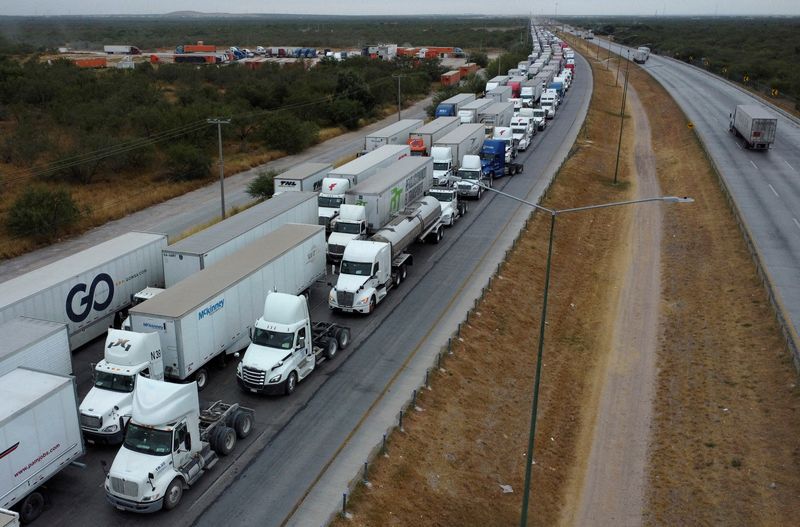Mexico warns Trump tariffs would kill 400,000 US jobs
2024.11.27 11:37
By Sarah Morland and Raul Cortes
MEXICO CITY (Reuters) – Mexican Economy Minister Marcelo Ebrard said on Wednesday that a 25% across-the-board tariff proposed by U.S. President-elect Donald Trump would lead to the loss of 400,000 jobs in the United States, slow growth and hurt U.S. companies and consumers.
“It’s a shot in the foot,” Ebrard said in a morning press conference, while adding the move would also hurt Mexican exports and calling for more regional cooperation and integration instead of a war of retaliatory import taxes.
He warned the tariffs would in effect double the taxes paid by U.S. firms producing in Mexico. “The impact on companies is huge,” he said.
Ebrard said the proposed tariffs would hit the automotive sector’s top cross-border export firms especially hard, namely Ford (NYSE:), General Motors (NYSE:) and Stellantis (NYSE:), and push up vehicle prices for consumers by thousands of dollars.
Mexico is the United States’ top trade partner and its automotive industry is the country’s most important manufacturing sector, exporting predominantly to the United States. It represents nearly 25% of all North American vehicle production.
Analysts at Barclays (LON:) said they estimate proposed 25% tariffs against Canadian and Mexican imports “could wipe out effectively all profits” from the Detroit three automakers.
“While it’s generally understood that a blanket 25% tariff on any vehicles or content from Mexico or Canada could be disruptive, investors underappreciate how disruptive this could be,” they wrote in a note on Tuesday.
Trump’s press team, as well as Ford and Stellantis, did not immediately respond to requests for comment. GM declined to comment.
Mexican President Claudia Sheinbaum called for dialogue and cooperation between the two trade partners on Tuesday, the morning after Trump announced the measure which would appear to violate the United States-Mexico-Canada Agreement (USMCA), a free trade pact Trump signed during his first term.
She hinted Mexico would respond with its own retaliatory tariffs, while analysts speculated on the possibility of a new trade war under Trump’s next presidency.
Mexico’s automotive industry group AMIA said it would prepare for any possibility and wait to see what formal actions are taken.
The USMCA is up for review in 2026.
Katia Goya, director of international economics at Grupo Financiero Banorte (BMV:), said it was likely the three USMCA countries would seek wholesale renegotiation of the pact rather than just rubber-stamp it to continue in its current form.
“The effect of a trade conflict situation is that it will mean lower economic growth in the United States, higher unemployment and higher inflation,” Goya said.

Ebrard said USMCA trade had amounted to $1.78 trillion in the first nine months of this year.
“We can fragment and divide with tariffs,” Ebrard said. “Mexico does not want conflicts and divisions, but to build a stronger region.”








